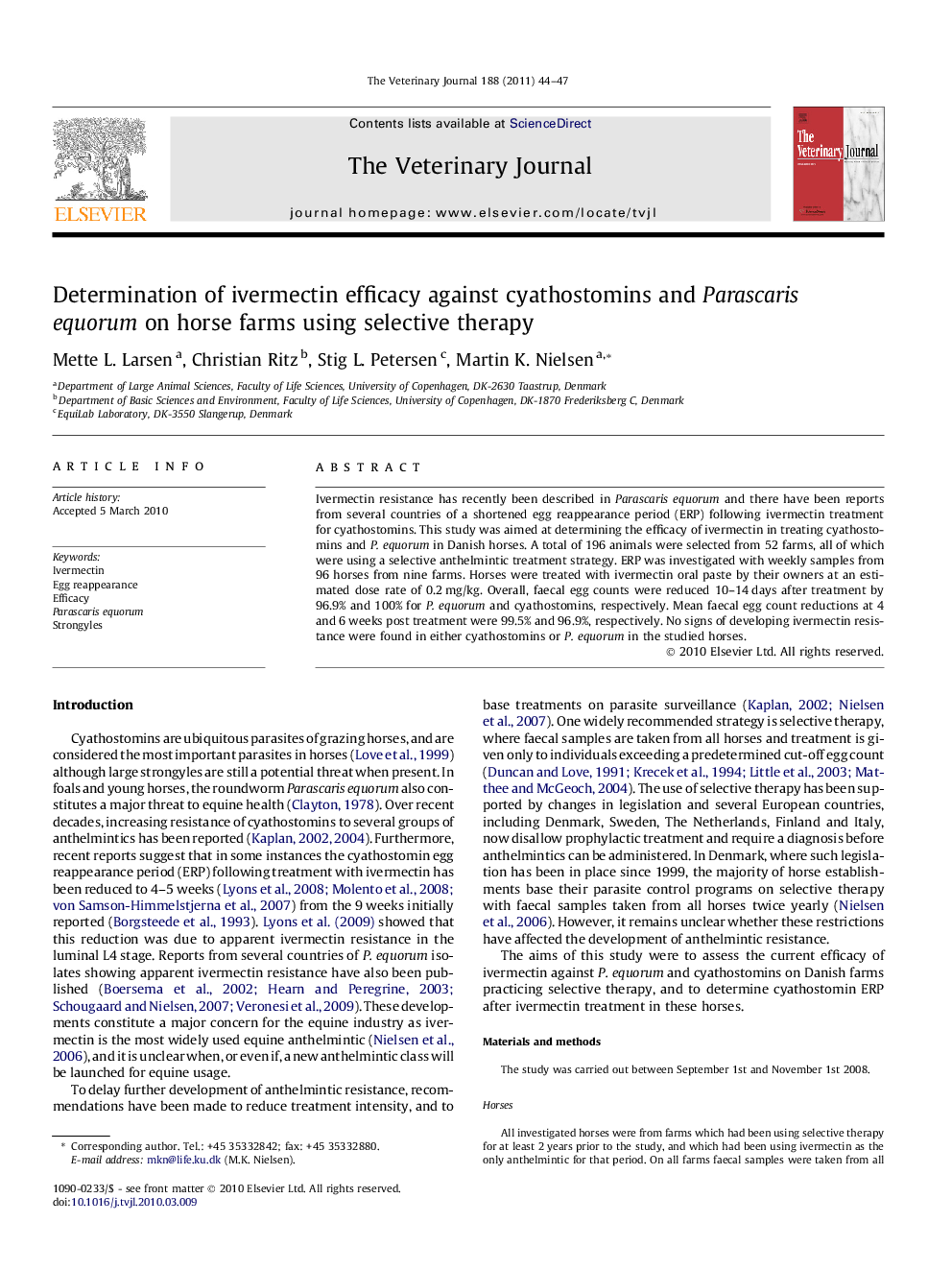| Article ID | Journal | Published Year | Pages | File Type |
|---|---|---|---|---|
| 2464625 | The Veterinary Journal | 2011 | 4 Pages |
Ivermectin resistance has recently been described in Parascaris equorum and there have been reports from several countries of a shortened egg reappearance period (ERP) following ivermectin treatment for cyathostomins. This study was aimed at determining the efficacy of ivermectin in treating cyathostomins and P. equorum in Danish horses. A total of 196 animals were selected from 52 farms, all of which were using a selective anthelmintic treatment strategy. ERP was investigated with weekly samples from 96 horses from nine farms. Horses were treated with ivermectin oral paste by their owners at an estimated dose rate of 0.2 mg/kg. Overall, faecal egg counts were reduced 10–14 days after treatment by 96.9% and 100% for P. equorum and cyathostomins, respectively. Mean faecal egg count reductions at 4 and 6 weeks post treatment were 99.5% and 96.9%, respectively. No signs of developing ivermectin resistance were found in either cyathostomins or P. equorum in the studied horses.
